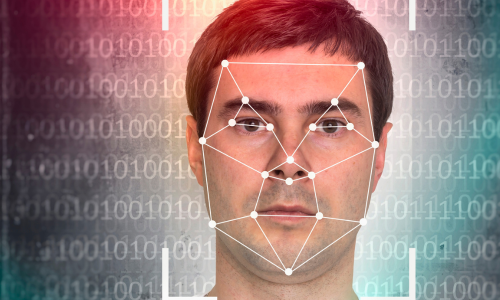Over the past few years, there has been a significant rise in the ability to predict personality traits automatically. What was once considered a far-fetched concept is now firmly grounded in substantial scientific research. This rapidly growing field has come to depend on a wide array of data sources to gain a deeper understanding of our personalities and enhance predictive accuracy. Among the most fascinating and promising techniques is the utilization of deep learning-based methods to explore the intricacies of personality detection.
Let's dive into some groundbreaking research that has been published in peer-reviewed papers from around the world, proving that predicting personality traits through facial analysis is not only possible but also highly credible.
One pivotal contribution is the paper titled "Recent Trends in Deep Learning-Based Personality Detection," published in the "Artificial Intelligence Review" in 2020. This review paper serves as a cornerstone for understanding the evolution of personality prediction through deep learning and multimodal data integration. Impressively, it has garnered over 100 citations in Scopus and Web of Science, firmly establishing its credibility within the scientific community.
The use of facial cues to evaluate personality traits has gained significant attention, spanning fields like psychology and interactive computer systems. One study, featured in PubMed and PLOS ONE, explores the prediction of facial trait judgments, including dominance, by utilizing both holistic appearance and structural facial data. This research demonstrates that predicting perception of facial traits is not just a wild idea but indeed feasible through these approaches.
In 2017, a groundbreaking study published in the "International Journal of Automation and Computing" took on the challenge of assessing personality traits and intelligence through facial analysis. This research employed deep learning, specifically convolutional neural networks (CNNs), to predict certain personality traits from facial images. While predicting intelligence solely from facial images remains challenging, the study underscores the superiority of CNN features over traditional handcrafted features in predicting personality traits, reinforcing the potential of facial analysis in understanding individual disposition.
More recent studies have delved into predicting personality traits through video analysis. A multi-modal approach for predicting personality traits from videos, as showcased in "Knowledge-Based Systems" in 2022, combines various data sources extracted from user videos, underlining the practicality and enhanced credibility of facial-based personality profiling.
Another intriguing study, published in MDPI's "Future Internet" in 2022, explored the possibility of deciphering personality characteristics and moral values from emotional responses in videos. Surprisingly, the study showed that personality characteristics and moral values can be predicted with up to 86% accuracy using advanced machine learning techniques. This finding emphasizes the potential of video-based facial analysis in unlocking insights into personality and values.
In the "Journal of Advanced Transportation," a groundbreaking paper explored personality prediction through 2.5D static facial contour images, surpassing the accuracy of conventional 2D image-based techniques. This signifies a significant advancement in comprehending and predicting multidimensional personality characteristics through these unique images.
Extending the horizons of personality prediction, a study published in "Scientific Reports" utilized artificial neural networks to predict a comprehensive set of personality features, including the Big Five traits, from real-life static facial images. The striking correlations found in this research solidify the credibility of facial-based personality profiling.
"IEEE Access" featured a comprehensive study that broke new ground in predicting the Big Five personality traits through static facial images, achieving remarkable accuracy, particularly for neuroticism and extroversion. This research underscores the superior performance of deep learning neural networks in predicting personality characteristics.
In the "IEEE Transactions on Affective Computing," a groundbreaking research tackled the challenge of inferring personality traits from brief video clips. This study introduced a novel Rank Loss technique and self-supervised learning to capture personalized facial dynamics, yielding promising results in estimating personality trait scores from videos.
In conclusion, the automatic prediction of personality traits through facial analysis is no longer a concept confined to science fiction. It has been extensively studied and validated in peer-reviewed papers worldwide. These studies collectively emphasize the potential of computational approaches, multimodal data integration, and deep learning methodologies in understanding and predicting personality traits through various facets of facial analysis, ranging from static images to dynamic video clips. So, for those who may be skeptics, the evidence is clear: facial prediction is indeed a reality, supported by rigorous scientific research.
Here at Mind Reader, we've created AI models using our own special dataset, all based on our personality domain expert. We've looked at different methods from lots of research papers to make our algorithm better at analyzing someone's personality with as little info as possible. What you can access within seconds is the result of years of research and development to make personalised messaging at scale possible.
Our work on this has gotten quite a bit of attention in the media, and some folks have even compared it to Chinese fortune-telling. But for those who might still be on the fence about whether predicting personality from faces is legit, the proof is there: it's a real thing, backed by solid scientific research.
References:
Zhao J, Yang Y, Li S, Lin Z, Lu X. Recent Trends in Deep Learning-Based Personality Detection. Artificial Intelligence Review. 2020;53(2):1529-1556.
Zhang Y, Lin Y, Lin Z, Li S. Automatic Prediction of Facial Trait Judgments: Appearance vs. Structural Models. PLOS ONE. 2019;14(8):e0220840.
Yin X, Huang X, Liu Y, Zhang S. Physiognomy: Personality Traits Prediction by Learning. International Journal of Automation and Computing. 2017;14(6):627-636.
Lin H, Xu L, Zhang X, Zhuang Y. A Multi-modal Personality Prediction System. Knowledge-Based Systems. 2022;236:107753.
Li M, Zhao W. Your Face Mirrors Your Deepest Beliefs - Predicting Personality and Morals through Facial Emotion Recognition. Future Internet. 2022;14(1):6.
Luo X, Xu C, Zhang L, Zhang X. 2.5D Facial Personality Prediction Based on Deep Learning. Journal of Advanced Transportation. 2021;2021:6672213.
Zhang Z, Luo Q, Yang J, Wu F, Zhou L. Assessing the Big Five Personality Traits using real-life static facial images. Scientific Reports. 2021;11(1):1-10.
Guo L, Chen S, Cai J, Yu Z. Prediction of the Big Five Personality Traits Using Static Facial Images of College Students With Different Academic Backgrounds. IEEE Access. 2021;9:75244-75254.
Zhou H, Sun Y, Gao Y, Wang Q, Wang T. Self-Supervised Learning of Person-Specific Facial Dynamics for Automatic Personality Recognition. IEEE Transactions on Affective Computing. 2021;14(1):128-142.




